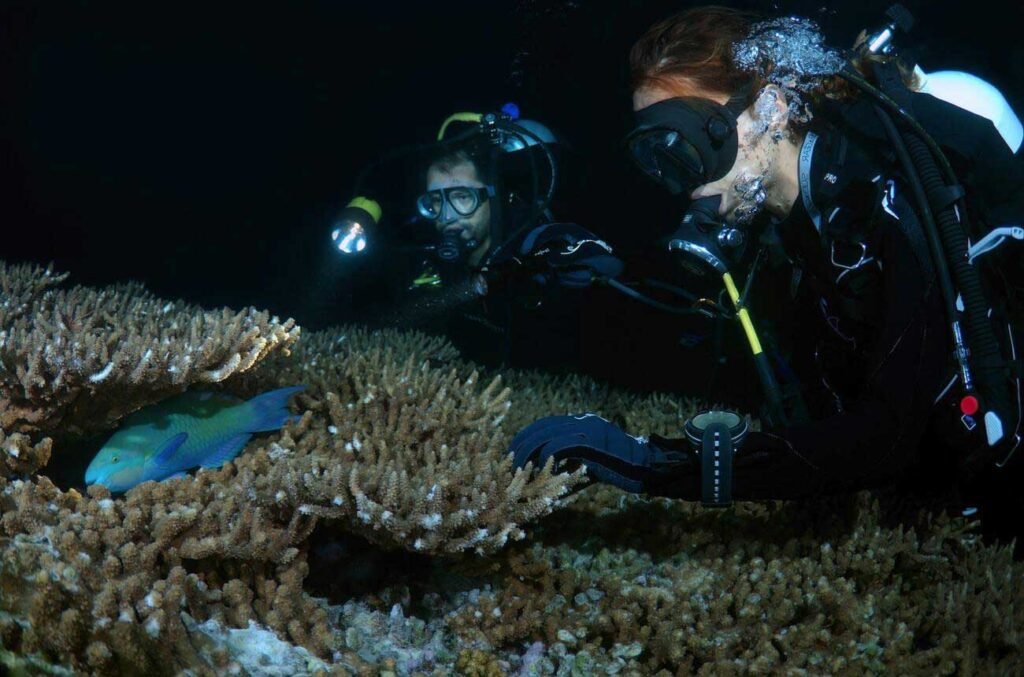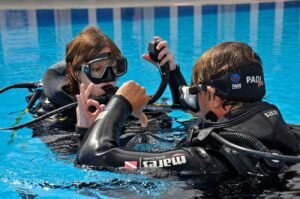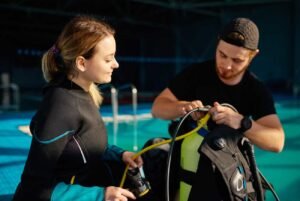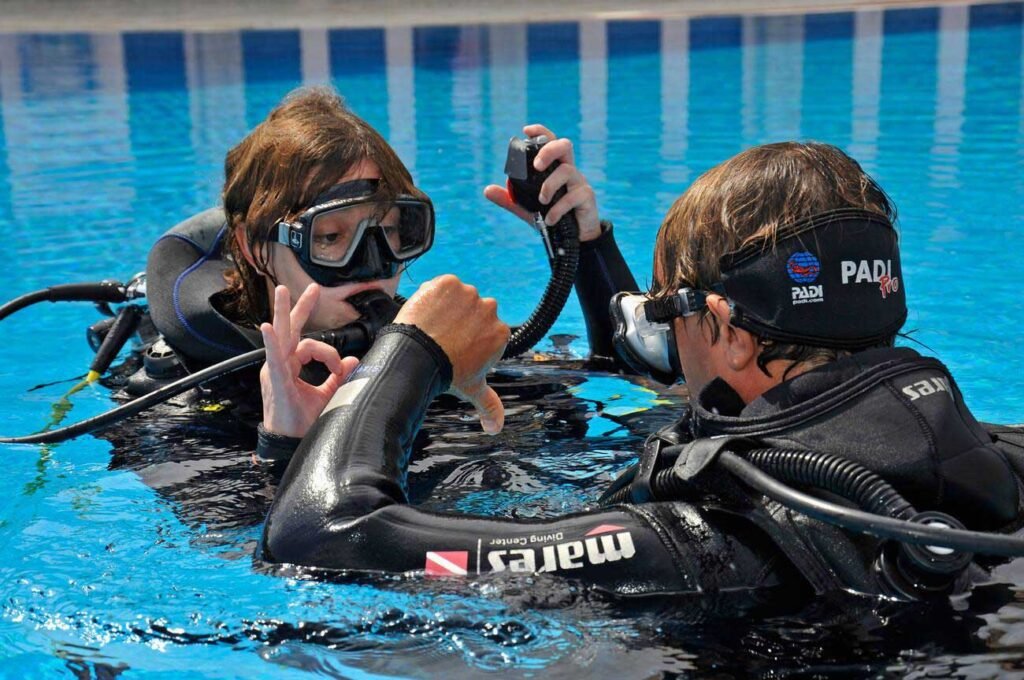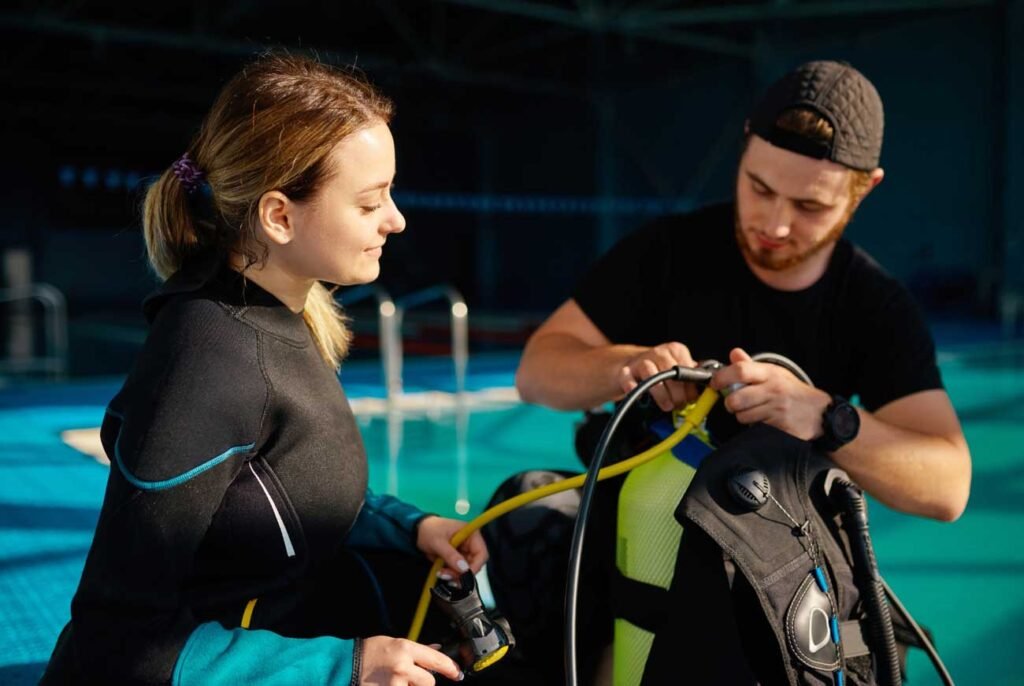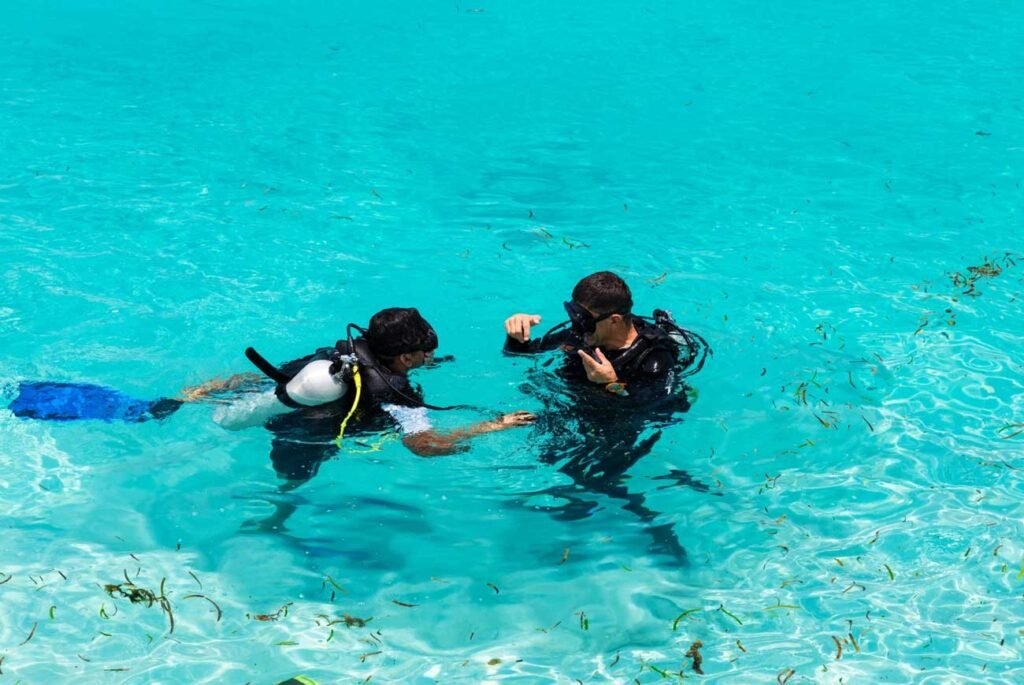When the sun dips below the horizon and the last rays of light fade from the ocean’s surface, a different world awakens beneath the waves. The reef that buzzed with colour and motion during the day transforms into something quieter, more mysterious — and more magical. This is night diving, and in Sri Lanka’s warm tropical waters, it’s an experience like no other.
Whether you’re a curious adventurer or a certified diver looking to take the plunge into something new, night diving offers a truly unforgettable glimpse into the secret life of the ocean after dark.
What Is Night Diving and Who Can Try It?
Night diving is exactly what it sounds like — scuba diving after the sun has set, using underwater torches to light your way. While the idea may sound intimidating at first, it’s actually one of the most peaceful and awe-inspiring forms of diving. The darkness heightens your senses, slows your movements, and draws your attention to the smallest, most mesmerising details.
To participate in a night dive, you’ll need to be a certified diver — usually Open Water certified, although many dive centres (like Pearl Divers) recommend or include night dives as part of the PADI Advanced Open Water course. This ensures you’re comfortable with buoyancy, torch use, and navigation in low-light conditions.
For divers with a few open water dives under their belt, it’s an exciting next step — a way to rediscover the reef from an entirely new perspective.
Why Night Diving in Sri Lanka Is So Special
Not all dive destinations are created equal when it comes to night diving. Sri Lanka, with its warm waters, calm seas, and thriving marine ecosystems, offers some of the best conditions for beginners and experienced night divers alike.
Here’s why night diving here is such a unique experience:
- Tropical Comfort: The sea remains warm even after dark, making for a relaxing, enjoyable dive without the chill that night diving can bring in colder waters.
- Calm Conditions: Many of Sri Lanka’s best night dive sites are protected bays and shallow reefs, perfect for slow, quiet exploration.
- Minimal Light Pollution: The coastal towns are quiet and peaceful, allowing for clearer night skies and darker waters — ideal for seeing bioluminescence.
- Uncrowded Dives: Most night dives are done in small groups, offering a more intimate and focused experience.
It’s not just a dive — it’s a surreal journey into another dimension, guided only by the beam of your torch and the rhythm of your breath.
The Magic of Marine Life After Dark
The reef changes completely once the sun sets. Daytime fish find hiding spots and settle in for the night, while nocturnal creatures emerge from the shadows to hunt, feed, and explore. You’ll notice new patterns, colours, and behaviours that you’d never witness during the day.
Here’s what you might encounter:
- Bioluminescent plankton: As you move through the water, tiny particles may glow in response — like underwater stars.
- Crustaceans on the prowl: Lobsters, crabs, and shrimp scuttle across the sand and coral, their eyes reflecting your light.
- Cuttlefish and octopus: Masters of camouflage, they display fascinating colour changes under your torch.
- Sleeping turtles: Resting peacefully beneath coral ledges or tucked into sandy patches.
- Lionfish and moray eels: Nocturnal predators that become more active under cover of darkness.
Everything seems closer, slower, and more intimate at night. Even the smallest movement — a flick of a fish’s tail, the swirl of sand — feels cinematic when viewed through a single beam of light.
Where to Go Night Diving in Sri Lanka
Sri Lanka’s south and east coasts offer a variety of excellent night dive sites that are safe, shallow, and filled with life.
- Unawatuna (South Coast): Calm conditions from November to April make this area ideal for night diving. Reefs like Jungle Beach and nearby shallow sites are popular choices for first-time night divers.
- Trincomalee (East Coast): Best from May to October, this region features reefs like Swami Rock, where night dives often reveal cuttlefish, rays, and glowing plankton displays.
Your dive centre will select the best site based on weather, tides, and your comfort level, ensuring a safe and enchanting experience.
Is Night Diving Safe?
Yes — and when done with trained instructors and proper equipment, it’s just as safe as daytime diving.
Some common concerns (like visibility, orientation, and fear of the dark) are quickly eased with a thorough pre-dive briefing and a good torch. Here’s how we keep you safe:
- Powerful dive lights are used to illuminate your surroundings.
- Buddy systems are strictly followed, with small groups and close spacing.
- Surface marker buoys and backup lights are always carried.
- Experienced guides lead the way, handling navigation and safety signals.
If anything, night diving tends to be calmer and more controlled than day dives — slower pace, more focus, and a deep sense of awareness.
What to Expect on Your First Night Dive
Night diving is not just about what you see — it’s about how it feels. The quiet. The glow. The sense of stepping into a hidden world.
Here’s what your experience might look like:
- Pre-Dive Briefing – You’ll learn how to use your torch, review signals, and understand what to expect underwater.
- Gearing Up – As the sky darkens, you’ll prepare your gear and test your lights.
- Entering the Water – Slowly descend, letting your eyes adjust as your torch begins to reveal the reef.
- The Dive Itself – You’ll move slowly, exploring hidden crevices and watching nocturnal creatures in action. Your guide will point out highlights as you go.
- Surfacing Under Stars – There’s nothing quite like emerging from a dive to see a star-filled sky reflected on the calm ocean surface.
Tips for a Memorable Night Dive
- Use a wide-beam torch to see more, and a backup light for safety.
- Stay close to your dive guide or buddy — communication is key.
- Let your eyes adjust before shining your light everywhere — sometimes it’s more magical in the dim glow.
- Don’t rush — the reef is more alive at night when you move slowly.
- On ascent, turn off your light briefly and wave your hands to spot bioluminescence — a moment you won’t forget.
Night Diving with Pearl Divers
At Pearl Divers, we offer guided night diving experiences from both our Unawatuna and Trincomalee dive centres (depending on season). Our instructors are highly experienced in night navigation and diver safety, and we keep our groups small for a more personal, focused dive.
Whether you’re doing your Advanced Open Water certification or simply joining for a guided experience, we’ll make sure your first night dive is unforgettable.
We provide all the necessary equipment, including torches and surface markers — and we’ll walk you through every step so you feel confident and excited to explore.
See the Ocean in a New Light
Diving at night isn’t just a new activity — it’s a new way of seeing. It’s the quiet, dreamlike version of the reef, filled with hidden moments and glowing life that only come out when the world is asleep.
If you’re ready to experience the ocean’s most magical transformation, night diving in Sri Lanka is the perfect place to begin.
